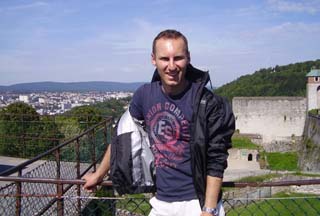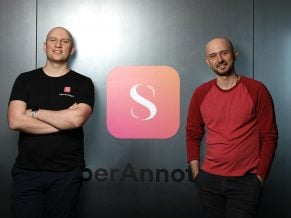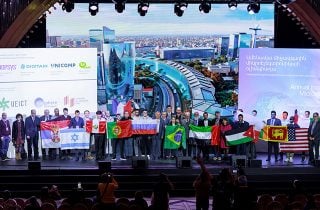Armen Sargsyan: “In science hard work will never be in vain”

A candidate of science Armen Sargsyan is a physicist, an experimentalist. He represents laser spectroscopy. He sees his further development in the collaboration with international scientists and in the form of short and long term visits to foreign states. “As of the rest, time will show,” he says and continues, “as it’s a new year I’d like to wish my fellow colleagues to work painstakingly and as they say hard work will always pay back and there will be new creative achievements. Science is the branch, where diligence is one of the key prerequisites in order to reach success. For example, in the sports it is not quite so. The sportsman may prepare for an Olympiad for years but in the event of a trauma everything goes in vain but in science, hard work is never lost. In the lab of laser spectroscopy of the National Academy of Science of Armenia, where Armen works, with the leadership of physics PhD Davit Sargsyan, nano-metric and micrometric optical cells are being developed. These cells that are applied in laser physics, optics and other domains of physics, are exclusively developed in Armenia. For this reason, all the results are original.
They are all authentic and that’s why there is a huge interest to Armenian scientists from abroad. This group of scientists closely cooperates with a number of renowned foreign scientific centers. Among the countries are Great Britain, France, Germany, USA, Switzerland, Russia, Bulgaria, Lithuania and others. It is a member of the Armenian-French IRMAS lab. The group and select members of the group have been receiving various international grants – INTAS, ISTC, etc. They have been selected by the American ANSEF funds five times. Armen has personally twice been the head of ANSEF project. “Last time it was this year.”
-The members of your group have received numerous prizes, including the award of the Armenian president. I congratulate you on receiving the Hayk award of 2012. Are these prizes and awards useful for the development of science?
-Thank you. Yes, indeed, I think that these awards are very important for the development of science. They stimulate the young scientists to be more active and expedient. But it’s very important to make these projects continuous and repetitive. In this case the young scientists will try to be more active during the year. For example, I myself, by seeing how high the competition was, tried to reach higher results. The activeness of the scientist is important for the scientist himself and the scientific group in general. Let me say that in many European countries, the scientist receives additional honoraria when he is adverted to in famous scientific magazines.
-This year, when wrapping up of the results of Hayk award, as a basis they relied on the publications in international magazines as a result of your visits and cooperation with international partners. Last year, they relied on references. Which of the time best reflected the nomination of the award? In general, what criteria should be used for this award for the years to come?
-Indeed, it’s a good thing to be published in international magazines because each article in such famous magazines is a result of hard work and presents essential scientific results. Therefore, these articles do not appear in these magazines accidentally. For example, in the American Optics Letters magazine, before publication a scientific article is being examined by three experts. The number of references is not a bad number but it’s necessary to wait for a few years for full information. In certain years one article might have 3-4 and up to 10 references. I think that it takes a few years to for the scientific article to gain n actual value. It might be necessary to consider both aspects. In developed countries this is what they usually do.
-What is your opinion of science in Armenia?
-While communicating with numerous talented scientists of Armenia we can come to the conclusion that in Armenia science still abides but when we look at the remuneration we get down to earth from the sky. The Facebook page “we demand higher funding for science” really gives certain results. We may say that the ice is cracking and the attitude of state bodies is changing to science and scientists. It is very important to build some kind of cooperation among scientists, which unfortunately is not as a desirable level now. By the way, I have once noticed that one of the scientific labs of Canada has chosen a theme of discussion our nano-cell processes.
-What main differences would you enumerate between Armenian and foreign scientific researches?
-I have been to Great Britain four times and the longest I had stayed was four months. The main difference of course is the salary. For example, in foreign countries a candidate of science is paid monthly 2500-3000 Euros but in Armenia our scientists receive 40-50 thousand drams a month. My main wish is to increase the salaries of Armenian scientists at least four times, which is quite possible. In other words, it is quite logical that in a country like Armenia, which is focused on science developed, the scientists are paid four times more than what they’re making now. Otherwise, we don’t have the right to criticize the Armenian scientists for leaving Armenia because they well know the level of their use abroad.
By Mane Hakobyan

























